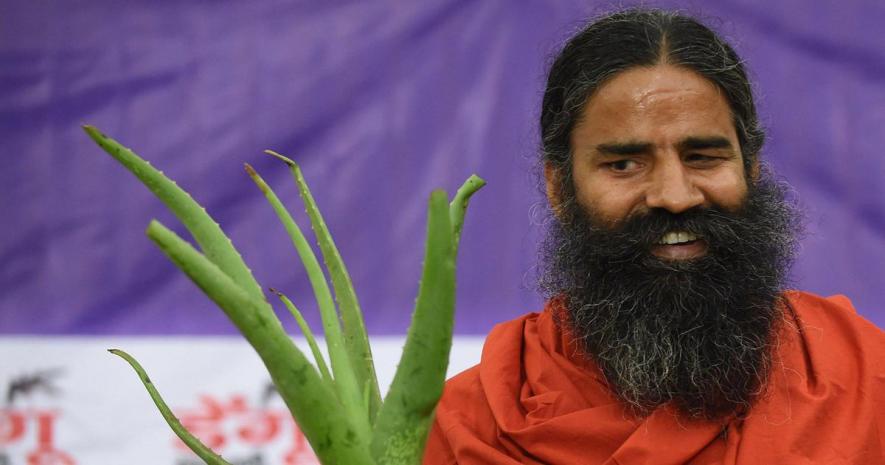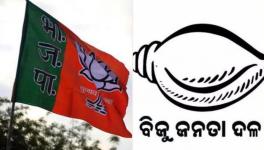Ruchi Soya Acquisition: Patanjali Struggles to Raise Money, Banks Apprehensive

Baba Ramdev-led Patanjali Ayurved Limited (PAL) is struggling to raise funds for the acquisition deal—of the edible oils manufacturing company Ruchi Soya—it had made in the insolvency process in July this year. According to news reports, banks are jittery over PAL’s repayment capacity after a rating agency downgraded its ratings in October. While expansion of the Patanjali’s business empire has remained mysterious since its inception, owing to its closeness to the ruling Bharatiya Janata Party (BJP), its current inability to complete Ruchi Soya acquisition raises questions over its financial health.
Care Ratings Agency in October downgraded PAL’s ‘Long Term Bank Facilities’ from CARE A+ to CARE A-. “The revision in the ratings of the bank facilities of PAL take into account expected weakening of its financial risk profile on account of large outflow of funds from PAL to Patanjali Consortium Adhigrahan Private Limited (PCAPL),” stated the agency on October 4.
On July 26, National Company Law Tribunal (NCLT), Mumbai had approved PAL’s proposal for the acquisition of Ruchi Soya. According to the proposed plan, PAL made a Rs 4,350 crore offer, of which, Ruchi Soya’s lenders (banks) will get Rs 4,240 crore for their dues and another Rs 110 crore is to be invested in Ruchi Soya’s expansion post-merger. With this deal, banks have agreed for a substantial 65% haircut, as Ruchi Soya’s outstanding dues were Rs 12,100 crore.
Furthermore, CARE stated that the sizable acquisition of Ruchi Soya, constitutes to 151% of PAL’s net worth as on March 31, 2019. It stated that PAL is not expected to provide a Corporate Guarantee or Letter of Comfort for the debt that is being raised to fund the acquisition. However, days later—on October 24—the rating agency withdrew the downgraded rating after PAL’s request.
Among the top lenders of Ruchi Soya were State Bank of India, which had an exposure of Rs 1,800 crore, followed by Central Bank of India at Rs 816 crore, Punjab National Bank at Rs 743 crore and Standard Chartered Bank at Rs 608 crore and DBS at Rs 243 crore.
The insolvency proceedings on Ruchi Soya began in December 2017 after Standard Chartered Bank and DBS approached the NCLT, as the company began defaulting loan obligations. In January this year, Adani Wilmar Ltd, promoted by Gautam Adani, opted out from the race of acquiring Ruchi Soya citing delay in the insolvency process.
"The existing bankers to Ruchi are again giving a loan for the acquisition by Patanjali. This fresh loan is being given after taking a haircut. Ideally, the fresh funding should come from a new lot of banks or overseas lenders. The matters may get complicated if the account were to again go bad,” a BusinessStandardreport quoted a source as saying.
However, it is not clear to which banks PAL has approached for new loans. Reportedly, PAL has applied for loans worth Rs 3233 crore for PCAPL. PCAPL is a special purpose vehicle of the Patanjali group that will be merged with Ruchi Soya after acquisition.
Ajay Chhabra, a digital marketer and health activist says that the deal is a double loss for the public money. “Already banks are losing over 50% of the lent money with the deal. And now Patanjali is again borrowing money from banks to pay Ruchi Soya’s dues,” Chhabra told NewsClick.
NewsClick, on November 2 had sent a list of questions to PAL public relations office seeking details about the status of the acquisition and about whether it is providing corporate guarantee to banks for the loan. There has been no response form PAL so far.
Patanjali has been mired in numerous controversies and its growth story has always been mysterious. In May 2017, Reuters had reported that Patanjali had received discounts worth over $46 million for land acquisitions in BJP-controlled states.
According to a report by CNBCTV18 in August 2018, PAL has invested nearly Rs 325 crore in a set of subsidiaries over the years. Most of these companies, the report says. have three things in common. “One, they have no commercial operations. The only income they earn is through interest on funds parked in banks or any other financial instrument. Two, they have been incorporated through a maze of transactions. Three, they underwent at least one name change,” stated the report.
In June 2019, Business Standard had reported that the Patanjali Group, through “companies controlled by Acharya Balkrishna, and some of their closely associated land dealers, has picked up more than 400 acres of forested common lands in the Aravalli hills of Faridabad, Haryana. It has done so, mostly over 2014-16, by circumventing restrictions put in place on sale of such common lands in Kot village, under more than 300 power-of-attorney agreements”.
Also read: How Haryana and Maharashtra Govts Sidelined Environment to Benefit Corporates
Get the latest reports & analysis with people's perspective on Protests, movements & deep analytical videos, discussions of the current affairs in your Telegram app. Subscribe to NewsClick's Telegram channel & get Real-Time updates on stories, as they get published on our website.
























